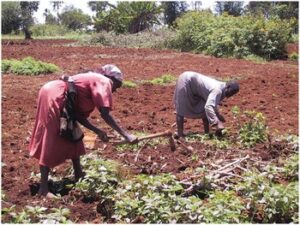The soil you are standing on remains an indisputable ingredient to zero hunger, in consonance with the United Nations Sustainable Development Goal 2; to “end hunger, achieve food security and improved nutrition and promote sustainable agriculture”. Despite this, our insatiable quest to gratify immediate exigencies has culminated in unsustainable activities like overgrazing, intensive tillage and deforestation that erodes the soil literally making it dead. This undoubtedly reduces available nutrients and space for plants’ growth, decreasing crop yields by up to 50 percent, according to experts. Even crops that manage to strive on eroded soils, are said to be smaller and less nutritious.
Also, the eroding of the soil by unsustainable anthropogenic activities has had a great toll on the quality of drinking water we have today. Soil unequivocally plays a vital role in capturing, storing and filtering water. So, when it is eroded, less water flows through it and the quality of water decreases due to inadequate filtering. Besides, recurrent floods, landslides and windstorms in key cities and some rural areas in Cameroon within August is largely attributed to inadequate soil to absorb water from a heavy rainfall, and to hold plant roots together due to erosion.
As Cameroon joins countries the world over to celebrate World Soil Day, December 5, 2020, under the theme: “Keep soil alive, Protect soil biodiversity”, farmers are implored to adopt a more sustainable soil management system like mulching instead of the traditional slash and burn, planting more creeper/cover crops, and limiting tillage amongst others. This is necessary for the protection of soil biodiversity, which play a crucial role in the ecosystem processes necessary for plant growth and soil stability.
The protection of the soil is also more than ever before necessary given its finite nature, with over 1000 years needed to restoring just a few centimeters, according to researchers. Meanwhile, FAO holds that if no appropriate actions are taking now to protect the soil now, over 90 percent of the Earth’s soils could become degraded by 2050. This, couple with other statistics indicating that 95 percent of our food comes from the soil, makes the stopping of soil erosion a categorical imperative.








